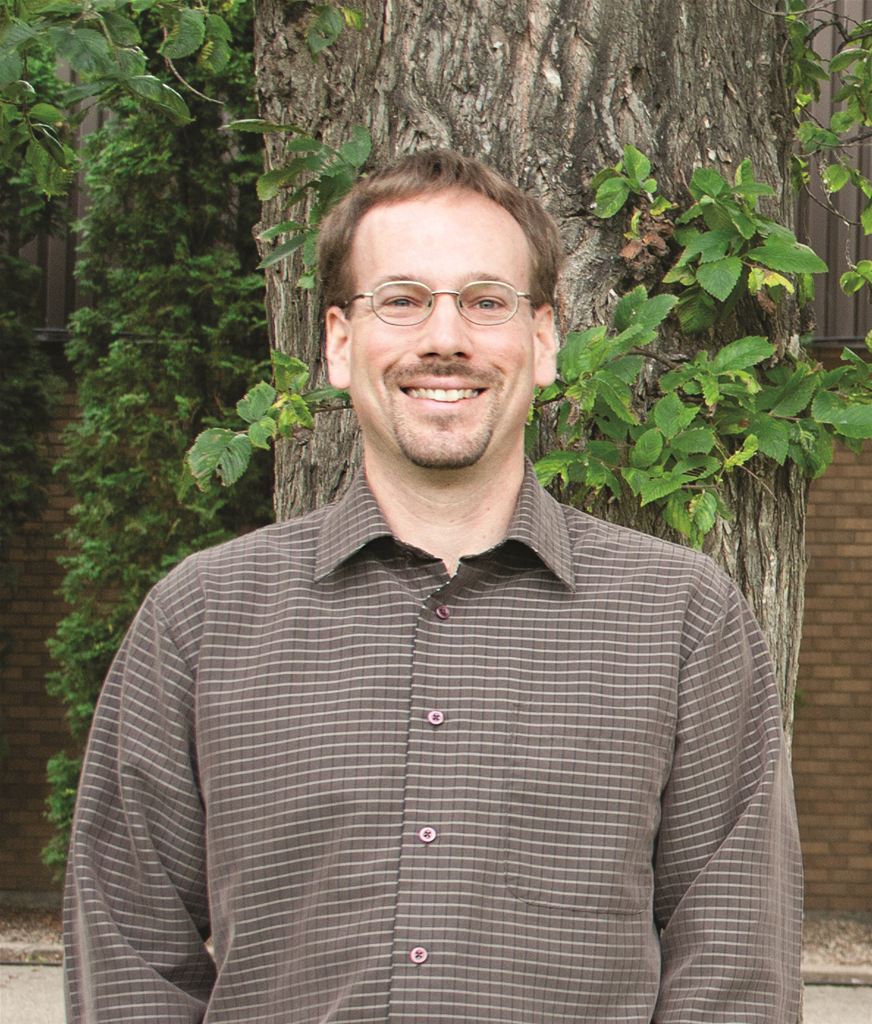David Miller has specific hope for Briercrest's biblical studies students

“I hope the bottom will drop and they’ll find that there are worlds to explore in the text and in issues related to the text that they hadn’t dreamed about,” he said.
That was true for Miller’s Briercrest experience.
“I came to high school here and my brother took his first year of college here,” he explained. “I remember hearing him talk about the classes he was taking and thinking, ‘Well, that doesn’t sound very exciting. Who wants to take a course on the Gospels if you are already reading the Gospels as a Christian?’ Then a couple years later I took Gospels from Wes Olmstead, learned a ton and was challenged spiritually at the same time.”
Miller was so taken with his experience that he went on for graduate studies after college, eventually earning a Master’s degree from Trinity Evangelical Divinity School and a PhD from McMaster University. He is now the program coordinator of Briercrest’s biblical studies program.
The associate professor of New Testament and Early Judaism enjoys the opportunity Briercrest gives him to research and teach in his area of expertise.
“I get to teach upper level courses on individual books of the New Testament and I love it when the students come alive to the text,” he said. “I like being able to talk about an issue and then say, ‘Well, what do we do with this as Christians?’”
Miller admits he also learns from his students.
“Questions and comments from students help me think in new ways about the subject matter.” he explained. “But it’s also a privilege teaching students who are living out their faith in concrete ways. Their passion to follow Jesus enriches our class time, and inspires me too.”
The professor believes strongly in the program.
“I typically tell students who are thinking of majoring in Biblical Studies the goal is to provide a first rate liberal arts education that’s unlike other liberal arts programs,” he said. “The core of what we’re studying relates to the core of our faith—the Bible.”
Miller admits there are particular courses within the program that seem overwhelming at first.
“The languages are intimidating,” he said. “But in fact the requirement to study Biblical Greek or Hebrew is one of the real strengths of the program. The social dynamic of spending two whole years with the same professor in a small group of students is fantastic, and then by the end of it you’re reading texts in the original language. It consistently transforms the way people read the Bible.”
Miller believes the skills instilled from a biblical studies degree can help a student no matter what they eventually pursue in life.
“Biblical studies is a great program to major in even if you’re not going to go into full-time Christian ministry or onto more academic study,” he said. “What you learn about reading carefully, thinking critically, and communicating clearly will serve you well whatever you end up doing. But in biblical studies there is a double pay-off because you get to take more courses about the Bible than you do in any other program here.”
There’s an end result that Miller hopes the program will create in students.
“In addition to development in faith and commitment to the church, I want them to come out with confidence and humility,” he exclaimed. “Less afraid of what the experts think and more confident in their ability to think through the text and study it and reach conclusions on their own. But also a humility that comes from deeper awareness of the history of interpretation and the complexity of the text.”
